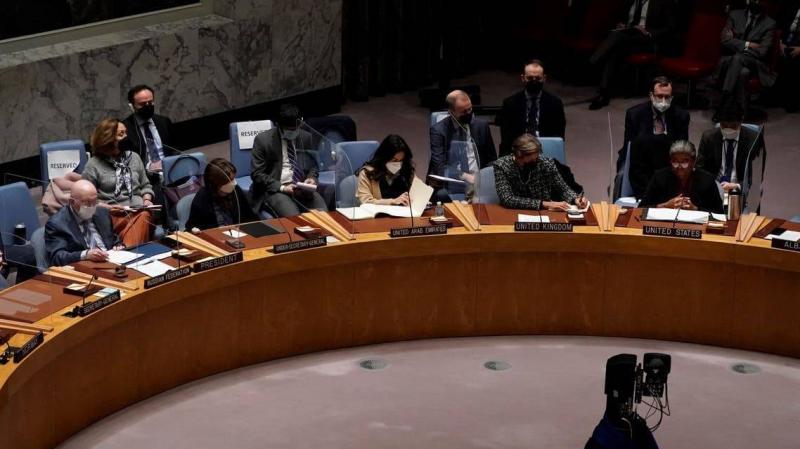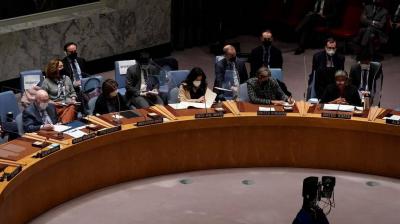Following Russia's recent escalation and President Vladimir Putin's recognition of the independence of the separatist regions of Luhansk and Donetsk in eastern Ukraine, the Security Council held an emergency meeting today, Tuesday, to discuss the developments of the crisis at the request of Kyiv, Washington, the European Union, and Mexico. Under-Secretary-General for Political Affairs Rosemary DiCarlo warned of the danger of a "large-scale conflict," urging the need to work to avoid it. She expressed regret over the deployment of Russian troops in eastern Ukraine on a "peacekeeping mission," affirming before the Security Council that the United Nations supports Ukraine's independence, unity, and territorial integrity within its internationally recognized borders. Additionally, she stated that the Organization for Security and Co-operation in Europe had recorded thousands of violations in eastern Ukraine.
The U.S. Ambassador to the United Nations, Linda Thomas-Greenfield, described Putin's claim that his ordered troops heading to eastern Ukraine are for peacekeeping as mere "nonsense," stating, "We know what their reality is." French representative Nicolas de Rivière regarded Russia's decision as a threat to the safety of its western neighbor, calling for Moscow to reverse its decision, emphasizing that France would continue its efforts to support Ukraine. The British representative also expressed concern that the invasion of Ukraine could unleash chaos and destruction, announcing that her country was preparing a significant package of economic sanctions against Moscow.
The Indian representative considered de-escalation and ensuring peace in Ukraine and the region as priorities, echoing the Brazilian representative who called for reduced tension and support for diplomatic efforts to resolve the crisis. Chinese Ambassador Zhang Jun urged all parties involved to exercise restraint and avoid any actions that could escalate tensions.
In contrast, Russian representative Vasily Nebenzya criticized U.S. and Western policies regarding the Ukrainian issue, stating during the meeting that the West plays a negative role in Ukraine. He also accused Kyiv of destroying the Minsk agreement, which established a ceasefire in eastern Ukraine since 2015. He noted that approximately 20,000 citizens had fled the Luhansk and Donetsk regions due to the escalation and Ukrainian shelling, asserting that "protecting civilians" was more important than Western threats to Russia.
He stated that the "Republics of Luhansk and Donetsk" declared their independence in 2015; however, Moscow only recognized them today. Nevertheless, he confirmed that his country would remain "open to a diplomatic solution," despite the current escalation.
Ukrainian representative Sergei Kyslytsya demanded that Russia revoke its recognition of the separatist regions, considering that step a threat to global peace. He emphasized that Kyiv was ready for negotiations and to resolve the crisis diplomatically, assuring that his country would not fall into the trap of Russian provocations.
It is worth noting that Putin had ordered his troops to enter the separatist regions in eastern Ukraine just hours prior, a move that challenges Western threats of imposing sanctions on Russia and poses a threat of igniting a catastrophic conflict with the Western-backed Kyiv government. He also recognized the independence of Luhansk and Donetsk, which have been controlled by rebels since 2014. In two official decrees, the Kremlin leader commanded the defense ministry to undertake "peacekeeping" tasks in the regions, paving the way for the deployment of part of the Russian forces amassed at the border, raising concerns about a potential invasion of their western neighbor.
Once news of Moscow's recognition of the regions spread through the streets of Kyiv, a state of disbelief prevailed among many, although they remained willing to defend their country if called upon. The recognition of the two separatist republics provoked international condemnation and threats from the United States and the European Union of imposing a broader package of economic sanctions against Moscow.




